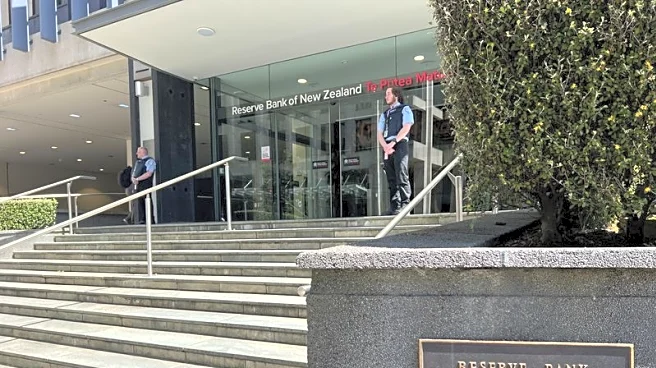By Lucy Craymer
WELLINGTON (Reuters) -The hit to New Zealand confidence caused by global uncertainty will fade as businesses get used to a time of heightened economic policy unpredictability, the chief economist at the country’s central bank said on Friday.
Paul Conway, chief economist at the Reserve Bank of New Zealand, said the confidence shock will pass and business will “just get on with it.”
"I fully expect uncertainty to persist into the future but to some extent, we get used to it,” Conway told
Reuters in an interview. "We can't sort of wait and see what's going to happen…forever," he said.
He added the central bank’s decision to cut the cash rate by 25 bps this week to 3.0% and flag further cuts was encouraging businesses to get on with it.
At its decision on Wednesday, the central bank highlighted weakness in both consumer and business confidence and the impact that this was having on spending as being one factor of concern for the economy. Governor Christian Hawkesby has said the impact of this uncertainty had been greater than the bank thought.
The U.S. has placed a 15% tariff on goods being imported from New Zealand, which was worse than the 10% initially signalled but not as bad as many other trading partners.
Conway said the changes to tariff rates were creating uncertainty and that is like “another shock on top of the tariff in the first place.”
“Those types of factors are ... causing businesses to be a little more reticent, households to be a little more reticent and that's perfectly rational,” he said.
The central bank decision to cut by 25 bps was not unanimous with two of the six board members voting to cut by 50 bps.
Conway said one member was "particularly keen" on a hold but ultimately the committee decided only to vote on cutting.
He said the member thought a hold at 3.25% might be a good idea as high frequency indicators were showing some improvement and inflation is nearing the top of the target range.
The member was concerned it "could sort of morph into more persistent inflation pressure," he said.
(Reporting by Lucy Craymer in Wellington; Editing by Lincoln Feast.)















